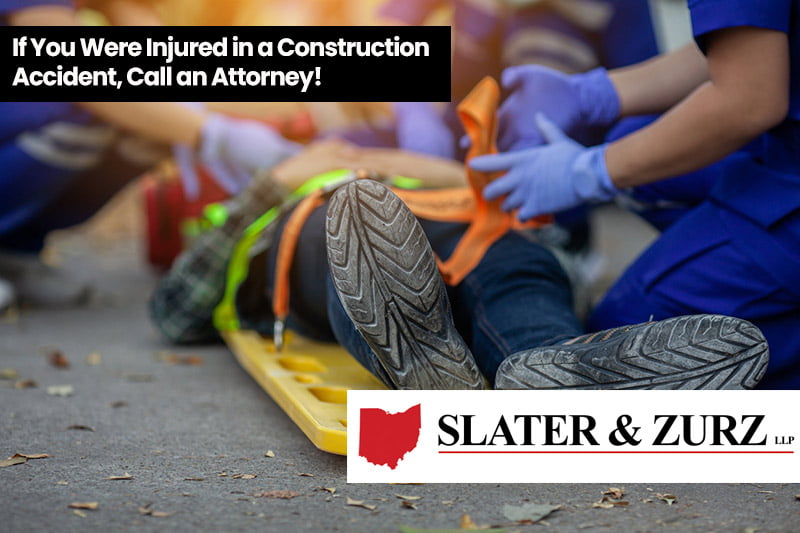Whether they happen on a construction site, in a warehouse, or on the factory floor, workplace injuries can be a time of stress and uncertainty. And while some injuries are immediately recognized as serious, others are downplayed or brushed aside, especially when production deadlines are tight and staffing is thin.
Yet, continuing to work while injured can jeopardize not only your recovery but also your workers’ comp claim. Whether the pressure is overt or implied, it’s important to understand what your rights are and how you can protect them.
What Are Your Rights After a Workplace Injury in Ohio?
Ohio workers are protected under the state’s workers’ comp system, which is designed to ensure that your recovery, not productivity, is the top priority.
Your rights typically include:
- The right to file a workers’ compensation claim: Injured employees may submit a claim to the Ohio Bureau of Workers’ Compensation (BWC) without fear of retaliation.
- The right to medical care: Individuals can seek treatment from any BWC-certified healthcare provider. Employers cannot require treatment through their own company doctor unless previously agreed upon.
- The right to refuse unsafe work: Workers are not required to continue tasks that could worsen their injury, especially if a doctor has recommended rest or placed restrictions.
- The right to wage compensation: If the injury prevents a return to work for more than seven days, temporary total compensation may be available to replace lost wages.
What to Do if You’re Pressured to Keep Working After an Injury
The pressure to return prematurely can lead to many long-term consequences down the line. If you resume work before you’re medically cleared, for example, it can weaken your workers’ comp claim, limit access to future benefits, or even be used to dispute the seriousness of the injury. In some cases, it can also exacerbate your condition, leading to longer recovery and additional medical expenses.
If you’re being pressured to return to work after a workplace injury, it’s essential to respond carefully and deliberately — follow these steps to protect both your health and your legal rights.
Document every instance of pressure or retaliation
In Ohio, it is illegal for an employer to retaliate against a worker for filing a workers’ compensation claim or following medical advice. But retaliation doesn’t always look like a pink slip; it can show up as subtle comments, withheld hours, or pressure to “push through” the pain.
If this happens, start documenting everything. Write down the date, time, and content of conversations. Save texts, voicemails, emails, anything that implies you’re being penalized or coerced for exercising your rights. These records can support a retaliation claim or bolster your case if your compensation is later disputed.
Prioritize medical documentation over managerial pressure
Ohio workers’ compensation law gives significant weight to medical evidence. If a BWC-certified doctor advises rest or outlines physical restrictions, that guidance overrides employer preferences.
Keep detailed records of all medical appointments, treatment plans, and work limitations. If your employer disputes your claim or pressures you to return early, your medical file may be your strongest legal protection.
Put your communication in writing
If you’re being pressured to work, respond in writing, especially if your doctor has issued restrictions. This could be an email or even a text message to your supervisor, foreman, or whoever oversees your schedule.
For example, you might write: “Per my doctor’s instructions, I am currently restricted from performing [specific duties] and will follow their treatment plan until cleared to return.”
Putting it in writing does two things: it formalizes your position and shows that you’re not acting in defiance or negligence. It also creates a clear timeline that can be referenced if your employer later claims you refused work without cause.
Understand the limits of “light duty” and modified work
Some employers offer “light duty” assignments as a way to bring injured workers back on the job, but not all light duty offers are legitimate. Under Ohio law, an employer can offer light duty only if the duties align with the restrictions outlined by your doctor. If the tasks go beyond your medical limitations, you’re not obligated to accept them.
Before agreeing to any modified work, request a written job description and compare it with your doctor’s restrictions. If the assignment exceeds what your doctor has approved, communicate that in writing and continue following your medical plan.
Contact a workers’ compensation attorney before problems escalate
Legal support isn’t just for lawsuits. An attorney can help you navigate early issues, such as improper return-to-work demands, retaliation, or benefit denials, before they spiral into bigger problems. Many firms, including Slater & Zurz, offer free consultations, so you can get a legal perspective without financial pressure.
Our attorneys can also communicate with your employer on your behalf, review light duty offers, and help you avoid mistakes that might affect your workers’ comp claim.
How Slater & Zurz Can Help
No one should have to choose between healing and keeping a job. If you’re being pressured to return to work after an injury, especially against medical advice, it’s time to protect yourself. Acting early can make the difference between a smooth recovery with full benefits and a drawn-out legal battle.
At Slater & Zurz, we’ve helped thousands of injured workers across Ohio stand up to unfair treatment and secure the compensation they deserve. Schedule a free consultation today by calling 330-762-0700 to discuss your rights and next steps.
Written by Robert Horton
Rob, a partner at Slater & Zurz, brings over a decade of experience advocating for the injured. His exceptional negotiation skills have consistently secured favorable outcomes for clients in motor vehicle accidents, dog bite incidents, and slip-and-fall cases.






